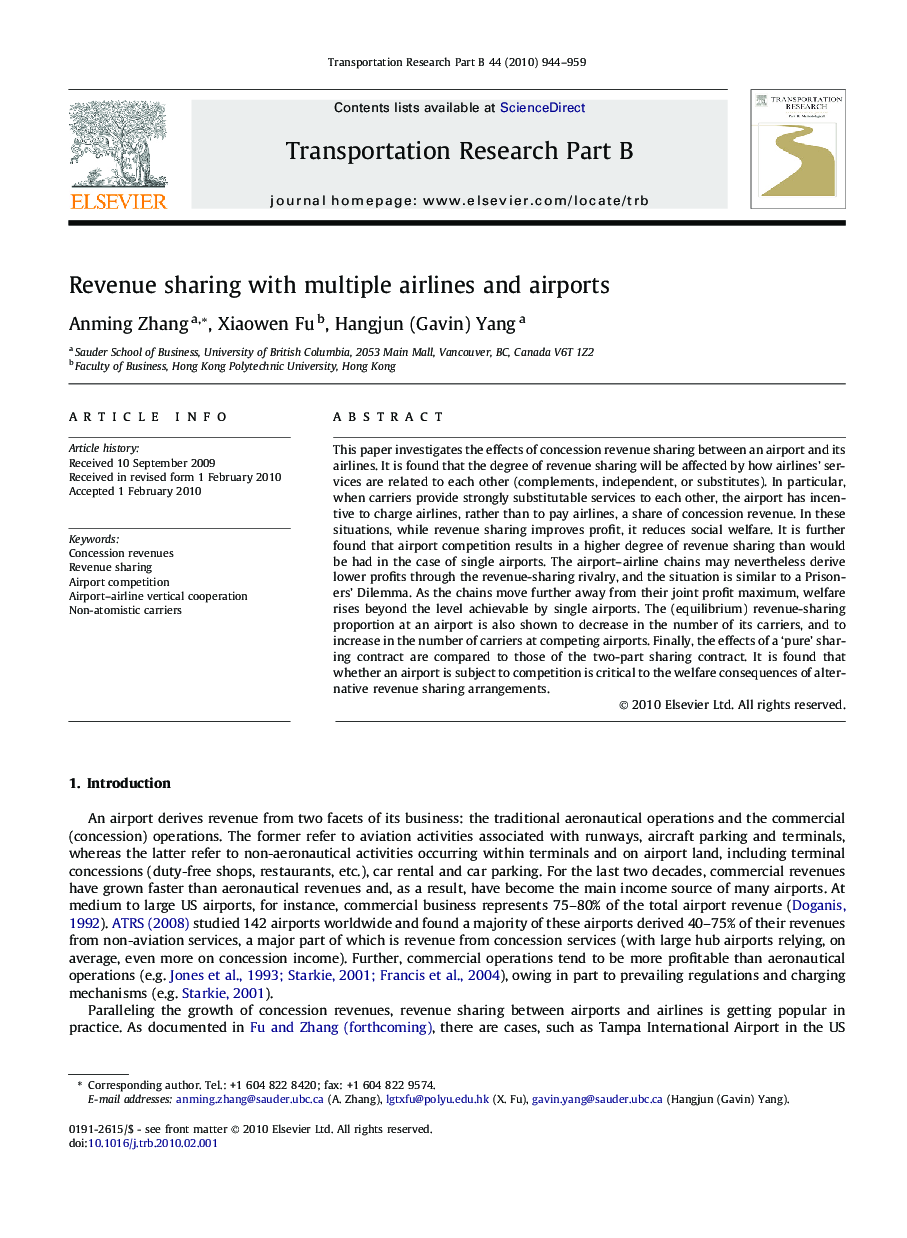| Article ID | Journal | Published Year | Pages | File Type |
|---|---|---|---|---|
| 1132868 | Transportation Research Part B: Methodological | 2010 | 16 Pages |
This paper investigates the effects of concession revenue sharing between an airport and its airlines. It is found that the degree of revenue sharing will be affected by how airlines’ services are related to each other (complements, independent, or substitutes). In particular, when carriers provide strongly substitutable services to each other, the airport has incentive to charge airlines, rather than to pay airlines, a share of concession revenue. In these situations, while revenue sharing improves profit, it reduces social welfare. It is further found that airport competition results in a higher degree of revenue sharing than would be had in the case of single airports. The airport–airline chains may nevertheless derive lower profits through the revenue-sharing rivalry, and the situation is similar to a Prisoners’ Dilemma. As the chains move further away from their joint profit maximum, welfare rises beyond the level achievable by single airports. The (equilibrium) revenue-sharing proportion at an airport is also shown to decrease in the number of its carriers, and to increase in the number of carriers at competing airports. Finally, the effects of a ‘pure’ sharing contract are compared to those of the two-part sharing contract. It is found that whether an airport is subject to competition is critical to the welfare consequences of alternative revenue sharing arrangements.
